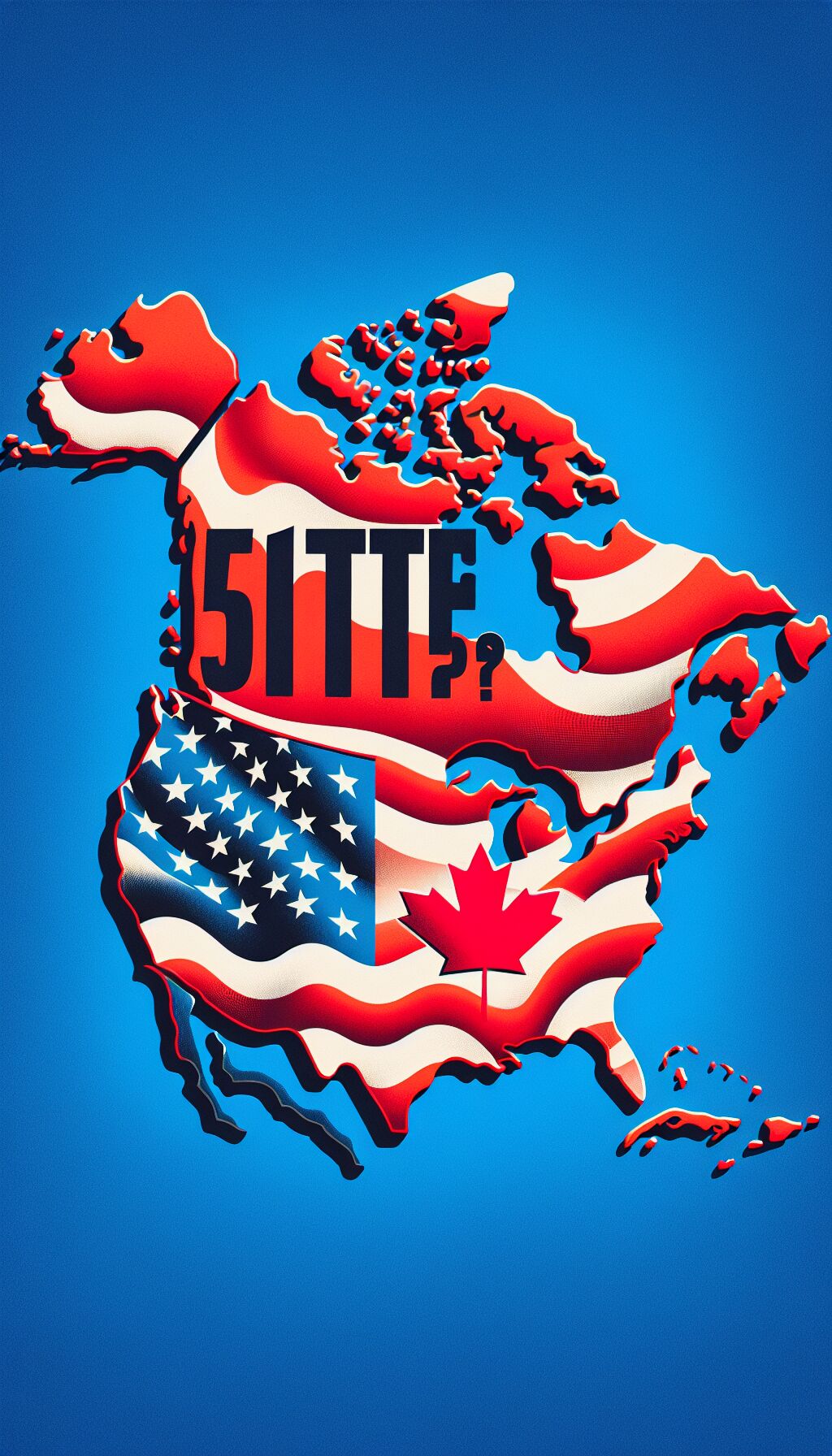Trump’s Bold Proposition: Canada as the 51st State?
In an audacious move that has garnered both attention and skepticism, President-elect Donald Trump has once again floated the idea of making Canada the 51st state of the United States. This suggestion, which Trump made during a recent news conference and through social media posts, has sparked conversations and debates across the political spectrum.
The Proposal Unveiled
On Tuesday night, Trump shared a pair of posts on his social media platform, Truth Social. The first post included a doctored map with “United States” emblazoned across both the U.S. and Canada, while the second featured the same geographic area draped in the American flag. Accompanying one of these images, he playfully remarked, “Oh Canada!”
This isn’t the first time the incoming president has mentioned the idea. Earlier on the same day, during a press conference at his Mar-a-Lago resort in Palm Beach, Florida, Trump said, “Canada and the United States. That would really be something. They should be a state.” His enthusiasm for this idea reflects a somewhat humorous but strategically interesting approach to international relations.
The Rationale Behind the Proposal
Trump’s rationale appears to be tied to economic and security considerations. He commented in a prior Truth Social post that “many people in Canada LOVE being the 51st State,” suggesting a desire among some Canadians for closer ties and integration with the U.S. economy.
He further argued, “The United States can no longer suffer the massive Trade Deficits and Subsidies that Canada needs to stay afloat.” According to Trump, merging the two nations would eliminate tariffs, lower taxes, and enhance security against perceived external threats from nations such as Russia and China. “Together, what a great Nation it would be!!!” he concluded, exhibiting his characteristic optimism.
Trudeau’s Firm Rebuttal
However, not everyone is on board with Trump’s suggestion. Canadian Prime Minister Justin Trudeau, who announced his resignation recently following pressure within his own party, responded directly to Trump’s comments. Trudeau stated unequivocally, “There isn’t a snowball’s chance in hell that Canada would become part of the United States.” He underscored the benefits of the existing trading and security partnership between the two nations, emphasizing their mutual reliance.
This exchange adds another layer to the ongoing relationship between Trump and Trudeau, often characterized by tension and a war of words.
The Ongoing Trolling of Canada
Trump’s comments about Canada have not merely been serious considerations but also part of a broader trend of trolling. Over recent weeks, he has repeatedly teased this notion of Canada becoming the 51st state, even posting a manipulated image of himself next to a Canadian flag on top of a mountain. His jabs have been directed not only towards the nation’s political standing but also towards Trudeau himself, whom Trump has often referred to as “governor,” perhaps an attempt to belittle his role as a national leader.
The former president’s rhetoric reflects a broader political strategy: by suggesting bold concepts and engaging in humor, he energizes his base while simultaneously stirring the pot politically in Canada.
The Trade War Dynamic
For context, Trump’s assertions about trade deficits are not unfounded. Historically, the U.S. has experienced notable trade deficits with several nations, including Canada. His administration previously engaged in significant trade negotiations that altered tariffs and trade structures in North America. The prospect of merging the nations into one could theoretically create a seamless trade environment devoid of tariffs and trade barriers, a compelling argument for some economic communities.
However, the complexities of political integration extend far beyond simple economic might. The cultural, geographical, and historical distinctions between the two countries would create a myriad of challenges that could far outweigh the alleged benefits.
The Global Landscape: Greenland and Beyond
Trump’s fascination with territorial expansion isn’t limited solely to Canada. He has previously expressed interest in acquiring Greenland from Denmark, a proposal that drew substantial backlash and ridicule when first made. This desire to acquire territory reflects a certain isolationist sentiment that seeks to bolster America’s geopolitical standing but risks creating rifts in international diplomacy.
While some supporters may find Trump’s propositions entertaining or bold, others view them as miscalculations in diplomacy that could strain relations with key allies.
Conclusion: A Political Distraction or Strategic Move?
As Trump continues to make these provocative statements, the question arises: Are they a serious consideration for U.S. policy, or simply a form of political distraction? His comments about Canada joining the U.S. may serve to galvanize his supporters while also creating a buzz that shifts the focus from pressing domestic issues.
In the end, while the possibility of Canada becoming the 51st state seems far-fetched, Trump’s rhetoric keeps a dialogue alive that provokes thought and debate. The relationship between the U.S. and Canada has always been complex, built upon shared histories but fraught with political nuances. Whether through levity or serious political discourse, Trump’s comments underscore the evolving nature of these bilateral relations, leaving both supporters and critics wondering what will come next.









